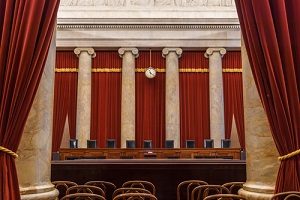Question of the Week — Should the Supreme Court Clarify Escobar?

Earlier this week, the Supreme Court declined to hear appeals in two False Claims Act (FCA) cases: U.S. ex rel. Berg v. Honeywell Int’l and Stephens Inst. v. U.S. ex rel. Rose. Each case was dismissed by a lower court based on the FCA’s materiality standard, with heavy citations to the Supreme Court’s 2016 decision Universal Health Servs. v. U.S. ex rel. Escobar. Berg and Rose are the fourth and fifth materiality-focused FCA cases the Court has refused to decide just this year: at the end of March, the Court denied a petition for certiorari in U.S. ex rel. Prather v. Brookdale Senior Living Communities, Inc. and in January it denied petitions in U.S. ex rel. Harman v. Trinity Industries and Gilead Sciences v. U.S. ex rel. Campie.
Taken together, these certiorari denials telegraph an increasingly clear message—the Supreme Court is so far unwilling to revisit Escobar, despite confusion and conflicting results in the lower courts. The widening post-Escobar circuit split centers on what plaintiffs must plead and prove to satisfy Escobar’s “demanding” and “rigorous” materiality standard and, in particular, the impact of the government’s continued payment of claims in the face of alleged non-compliance with legal, regulatory, or contractual requirements.
READ MORE:
- DOJ Affirms its Materiality Provision but Threatens to Dismiss Gilead FCA Case
- False Claims Act Developments: Sixth Circuit Rules that Timing Matters When It Comes to Certifying Plans of Care
- Supreme Court Considers Revisiting Key FCA Decision
- Ninth Circuit Finds Materiality in the Face of Continued Government Payment
- Whistleblower Goes it Alone and Wins Big in Guardrail Case
- Constantine Cannon’s Whistleblower Team
- I Think I Have a Whistleblower Case
- Submit a Confidential Whistleblower Claim
- Whistleblower FAQs
Tagged in: FCA Federal, Question of the Week,